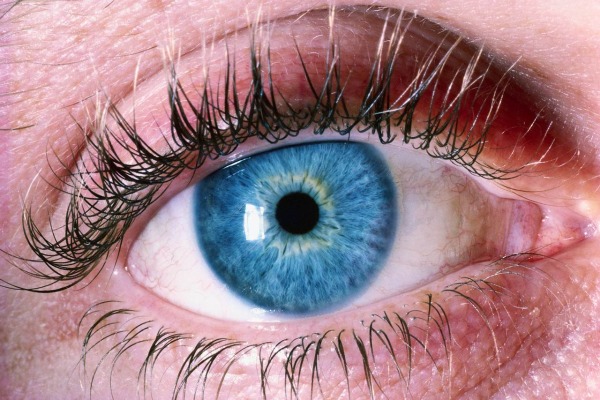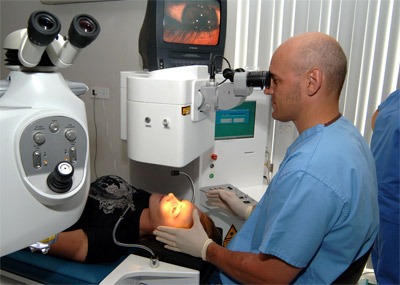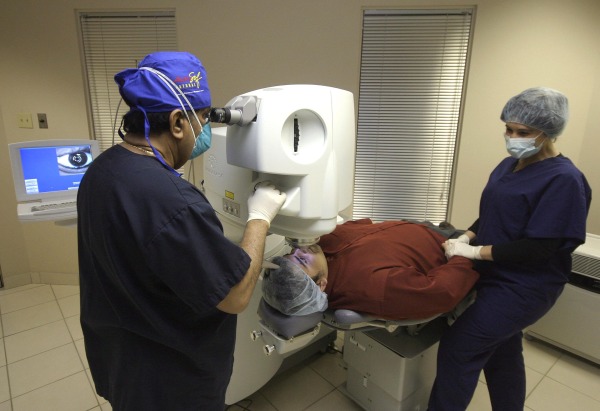


|
Treatments for the perfect vision !
Today, there are 3 options available for sight improvement: |
 |
Your travel & treatment Your doctors & clinics Prices & costs
Glasses date back to about 700 years. Initially, only the refraction problems of hyperopic people could be improved. It was only much later on, in the 16th century that concave glasses were introduced to correct short-sightedness. Most refraction defects can be properly corrected by wearing glasses; however, applications may be disadvantageous or even disturbing in certain life situations.
Contact lenses as a tool for sight improvement appeared in ophthalmologic practice about 80 years ago. Initially used hard lenses have been recently replaced by oxygen-permeable semi-hard lenses and soft lenses with high water content. There is an ever-wider range of applications; however, contact lenses are not always suitable, either.
The third option for improving clear sight is refractive surgery, although it had only existed for a few decades, it has been proven successful and popular. Given our accelerated lifestyle, it is more and more important for us to be able to have adequately clear sight in a variety of situations. By applying more and more perfected and reliable methods, refractive surgery intends to ensure the clearest sight possible without any appliances.
|
Our life is full of activities in which the wearing of glasses / contact lenses is just irritating. Just think of a cold winters day when you enter a warm place from outside: your glasses will be foggy and it takes you minutes until you can see clearly again. For those who enjoy extreme sports or for those who exercise daily, the wearing of glasses can be also very annoying. In addition there is the fear of suffering an accident by a broken pair of glasses: its tiny parts could go into your eye. With some kinds of water sports ( such as swimming, diving, waterball ) it is just not possible to wear glasses. Contact lenses can also be irritating, with similar problems. |
Swimming is not so comfortable with glasses / contact lenses… |
The continuous cleaning and the fear from losing and damaging expensive glasses lead most sport-loving people to correct their vision by laser.
Laser is used in 3 procedures worldwide to change the refraction of the cornea, that is, to achieve permanently clear vision:
1. PRK: the absolutely safe
2. LASIK: the comfortable >>>
3. IntraLASIK: the safe and comfortable >>>
Do not forget: your sight worths it !
1. PRK: the absolutely safe
Laser is used directly on the surface of the cornea. PRK vision correction surgery is recommended for refractive errors of under -4 dioptres.
Its advantage is that it is exceedingly safe and has outstanding outcomes. Its disadvantage is that the first 3 postoperative days are quite uncomfortable, sometimes even painful. Returning to work takes 4-8 days, the healing period is long.
|
Development of the excimer laser started in the 1980s. Since then it has been proven that surface laser treatment is highly suitable for correcting refraction errors. The excimer laser device itself works at high accuracy, under computer control, and using high-power UV light impulses, thereby it can evaporate the surface tissue of the cornea without damaging adjacent areas and adjust eye refraction to the desired value. After treatment, the cornea acts as built-in glasses. Excimer laser treatment can be performed on myopic ( short-sighted ) patients over 18 whose refraction has not changed for a year and on hyperopic ( long-sighted ) patients over 40. |
 |
This surgery is primarily recommended for people whose myopia ranges from -1.0 and -6.0 dioptres; whose hyperopia is between +1.5 and +4.0 dioptres; and whose astigmatism is between 1.0 and 4.0 dioptres.
Beyond these values, the number of dioptres can be decreased upon individual assessment.
In the course of the intervention, the eye of the patient is anaesthetized by eye drops; then the epithelium of the cornea is removed. Then the excimer laser intervention is performed, removing a microscopic tissue layer from the surface of the cornea.
The laser process itself takes 30 to 60 seconds during which the patient must look at a flashing red light.
After a PRK intervention, you get eyedrops to avoid superinfection, which should be administered 5 times a day for a week.
During the first 3-5 days after a PRK intervention, lacrimation, the feeling of a foreign body and sensitivity to light are to occur; sometimes even pain and obscured sight also occur. This unpleasant feeling will subside by the 5th day after the operation. Your sight is expected to be stable by 2 to 3 months, but usually you will see quite well first week after the surgery, so you can return to your usual lifestyle.
After the operation you need to have regular ( monthly ) check-ups, for about 6 months.
2. LASIK: the comfortable
Laser is used in the insensitive layers under the surface of the cornea to correct vision. In the traditional LASIK procedure, a mechanical tool, the so-called microkeratome is used to cut a protective flap in the cornea to get to the insensitive layers.
The advantage of the traditional LASIK intervention is that not only the surgery, but the postoperative stage, is free of any severe discomfort or pain. Vision stabilizes fast, so returning to work is feasible within 1-2 days.
Its - rare - disadvantage is that the flap created with the mechanical microkeratome may have complications.
More info: 3. IntraLASIK, the safe and comfortable >>>

"The joy of health and beauty… and the World smiles with You"



